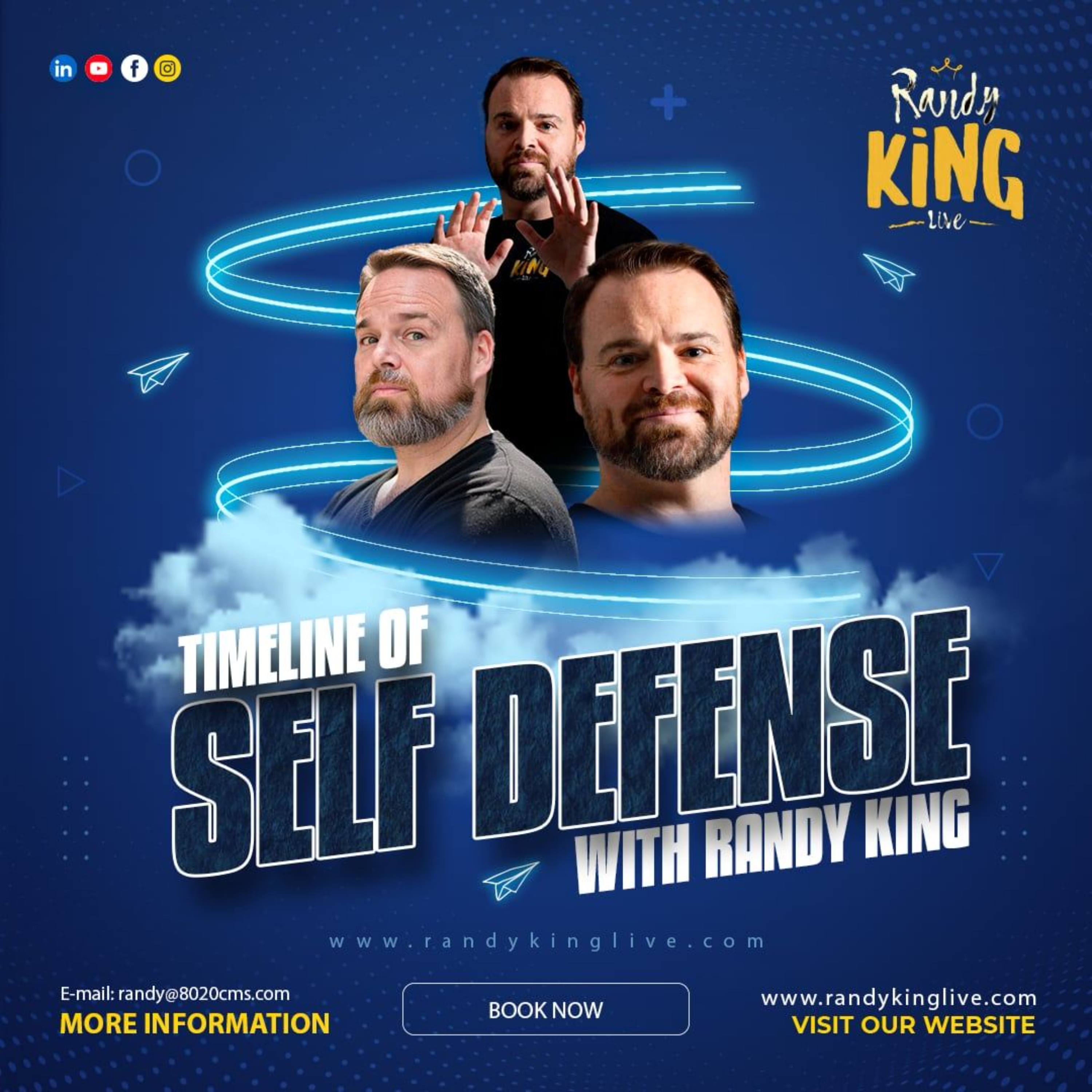The Timeline of Self Defense

The Timeline of Self Defense
Podcast Description
The Timeline of Self-Defense with Randy King
Hosted by internationally recognized self-defense expert Randy King, this podcast breaks down how violence really works; before, during, and after an encounter.
Each week, you’ll get headline-driven lessons, expert interviews, and proven real-world strategies you can use right now to stay safer.
🎤 New episodes every week
🎁 Get full, uncut interviews, bonus lessons, and early access at randykinglive.com
Podcast Insights
Content Themes
The podcast focuses on self-defense strategies encompassing prevention, real-time management of violence, and the aftermath of encounters. Episode examples include discussions on cultural awareness for personal safety with Instructor Bensei, boundary setting for empowerment with Pamela Armitage, and trauma care after violent incidents with Terry Trahan. Specific themes include psychological preparedness, situational awareness, and self-care, enabling listeners to understand their personal triggers and navigate safety.

The Timeline of Self-Defense with Randy King
Hosted by internationally recognized self-defense expert Randy King, this podcast breaks down how violence really works; before, during, and after an encounter.
Each week, you’ll get headline-driven lessons, expert interviews, and proven real-world strategies you can use right now to stay safer.
🎤 New episodes every week
🎁 Get full, uncut interviews, bonus lessons, and early access at randykinglive.com
Most people think self-defence starts with throwing punches, but real survival starts in your head. In this episode of The Timeline of Self-Defence, we’re in the During phase with Faith Roswell, founder of Armour for Life in the UK. Faith teaches psychological self-defence — how to manage fear, think clearly, and make decisions that keep you alive when things go sideways. We talk about what’s really happening in your brain during violence and why freezing isn’t weakness. Faith shares how to use your awareness, body language, and environment to take back control, plus a real story from her own life about staying smart under pressure. You’ll learn: • What “freeze” really is and how to move through it • How to control tunnel vision and see the full picture • How to make decisions in seconds under pressure • The difference between posture, threat, and real danger • When to disengage, when to fight, and when to flee If you’ve ever wondered how your mind and body react in real danger, this episode breaks down the psychology of survival in a way anyone can use. Timeline Phase: During – Decision-making under pressure and surviving the moment without making it worse Guest: Faith Roswell, Founder of Armour for Life Website: https://www.faithroswell.co.uk Instagram: https://www.instagram.com/faithroswell Facebook: https://www.facebook.com/ArmourForLife Connect with Randy: Website: https://www.randykinglive.com Instagram: https://www.instagram.com/randykinglive LinkedIn: https://www.linkedin.com/in/randykinglive YouTube: https://www.youtube.com/@randykinglive Free Course: Grab your free 6-hour online course “Setting Boundaries That Stick” — a practical guide to verbal and emotional self-defence, available now at randykinglive.com #selfdefense #timelineofselfdefense #faithroswell #armourforlife #psychologicalselfdefense #fightflightfreeze #randykinglive #personalSafety #mentalresilience #deescalation

Disclaimer
This podcast’s information is provided for general reference and was obtained from publicly accessible sources. The Podcast Collaborative neither produces nor verifies the content, accuracy, or suitability of this podcast. Views and opinions belong solely to the podcast creators and guests.
For a complete disclaimer, please see our Full Disclaimer on the archive page. The Podcast Collaborative bears no responsibility for the podcast’s themes, language, or overall content. Listener discretion is advised. Read our Terms of Use and Privacy Policy for more details.